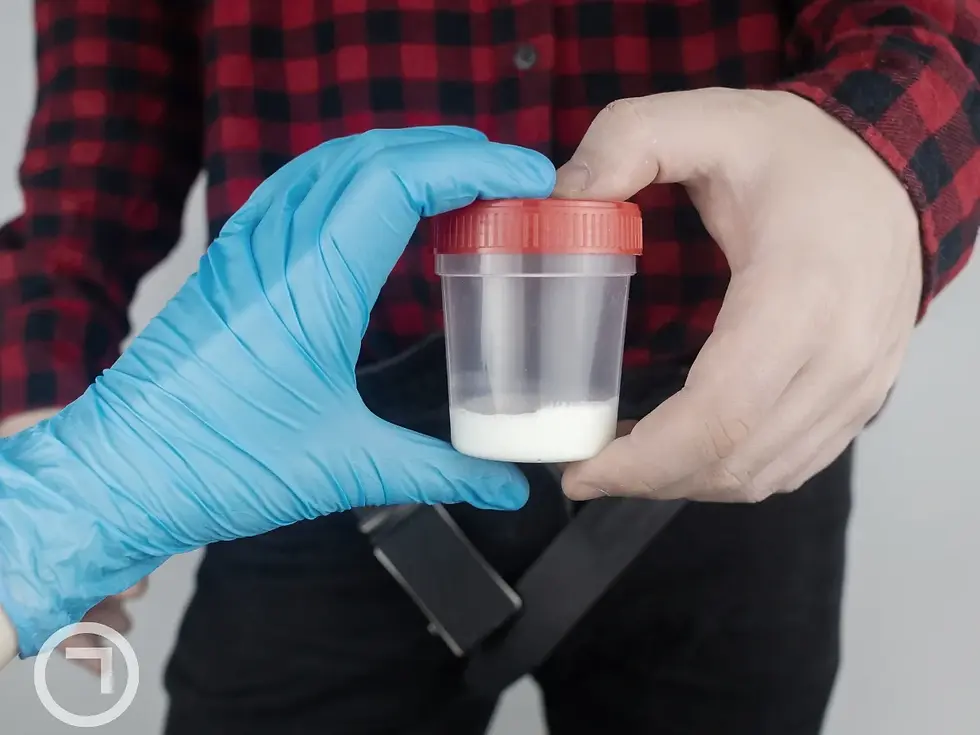
Interested in learning the lesser-known facts about sperm donor clubs and the kind of people that support this worthy cause? Are you considering having a significant impact on the lives of future parents and their children? Look nowhere else! We will provide the lesser-known facts about the sperm donors club in this post to enlighten readers and possibly even potential donors.
Through this article, we will highlight the crucial role these kind men play in assisting others in realizing their parental ambitions. Therefore, have a seat and empower yourself as you learn the facts about the sperm donor club.
Comprehensive Screening Process

In order to ensure the highest levels of quality and safety for all parties involved in the sperm donation procedure, sperm donors must go through an extensive screening procedure. Donors undergo an in-depth assessment of their genetic profile, family medical history, and psychological well-being in addition to a physical health check.
To find any potential genetic disorders or hereditary diseases that might be passed on to offspring, genetic testing is done. This guarantees that only donors with a perfect genetic health report are chosen, lowering the possibility of genetic problems in subsequent generations.
Evaluations of the family's medical history are essential for discovering any underlying health issues that genetic testing could miss. In order for recipients to decide whether or not to use a given donor's sperm, they must have this knowledge in order to do so.
Psychological evaluations also assist in determining the donor's emotional and mental readiness for the donation process. These tests make sure that donors are emotionally and psychologically capable of handling the possible emotional effects of their choice as well as the prospect of future contact with donor-conceived children.
Sperm donation clinics and organizations guarantee the welfare of both receivers and prospective offspring by implementing such a stringent screening process.
Donor Anonymity and Identity

In the context of sperm donation, there has been intense discussion on the relative merits of donor anonymity versus identity disclosure. This is a topic on which various sperm donation organizations have different policies, giving potential donors and recipients options that fit their values and tastes.
Donors can stay anonymous in order to maintain their degree of privacy and keep their relationship with the recipient's family separate. This choice may be appealing to donors who seek to make a charitable donation without having any desire to be involved or connected with any ensuing offspring in the future.
However, some sperm donation organizations have an open donor policy. This means that the donor-conceived child has the option to access their donor's identity and background information when they reach a specific age, typically when they become adults. In order to foster potential connections and a better awareness of their biological roots, proponents of open donor policies contend that children have a right to know their genetic history.
For both donors and recipients, the decision between anonymity and identity revelation is very personal, and each strategy has advantages and possible drawbacks. Donor-conceived children and their parents must grapple with difficult emotional and moral dilemmas as more people become interested in learning about their genetic backgrounds.
Regardless of the chosen policy, transparency and informed consent remain essential elements in the world of sperm donation.
Limited Number of Offspring

Numerous sperm donor clubs restrict the number of children that can be born from a single donor's sperm to ensure ethical and acceptable activities. These clubs seek to minimize the overpopulation of genetic siblings by limiting the number of families a donor can support. This strategy accomplishes two crucial goals: it reduces the likelihood of potential genetic problems that may result from a large number of half-siblings and it preserves donor variety. Sperm donor clubs prioritize the health and well-being of the receivers and any possible kids while also fostering a varied gene pool for future generations by limiting the number of offspring per donor.
Rewards and Incentives
Sperm donor clubs frequently employ sperm donor incentives and rewards to draw prospective donors and recognize their important efforts. The amount of monetary remuneration varies according to variables including local laws and the demand for donor sperm. It acts as a thank-you gift for the time and effort donors put in during the procedure.
Some clubs provide numerous incentives in addition to monetary remuneration to further encourage donors. To verify eligibility and ensure donors' health, free health exams are offered. Donors can gain important knowledge about issues relating to fertility and reproductive health by having access to educational resources.
Additionally, some clubs provide donors or members of their families with reduced fertility treatments.
Multifaceted Donor Profiles
Potential sperm donors are essential in assisting individuals and couples to achieve their parental aspirations. In order to achieve the optimal match between donors and receivers, sperm donation organizations take into account the importance of your contribution and develop thorough donor profiles. These in-depth profiles include a plethora of details about you, such as your physical characteristics, educational history, and interests. Your personality and the reasons behind your donation may be shown through personal essays that you might include. This openness enables those who receive it to make wise choices, strengthening the bond between you and the intended family. You can have a significant impact on the lives of persons whose particular needs you might happen to meet by sharing this useful information.
Conclusion
And finally, it's crucial to understand how sperm donation laws differ around the world. Many nations have outright banned anonymous sperm donation, while others provide a variety of legal frameworks for donor name disclosure and reimbursement. Different nations also take different methods of sperm donation. Aspiring parents can handle the process with confidence and identify the best solutions for their particular family-building journey by being well-informed about these variations.
For males who are interested in donating sperm, understanding these obscure sperm donation facts is essential. Donors can make decisions that are in line with their ideals and objectives by being aware of the process.
Article by: Girish Pangeijam
Edited by: Puneet Kapani
